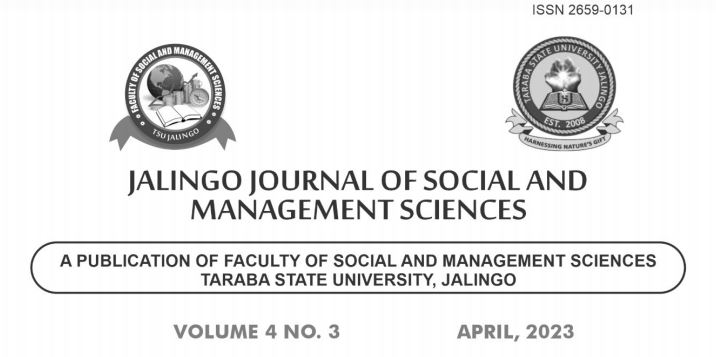Politicisation of Ethno-Religious Conflicts in Nigeria: Implications for National Cohesion and Development
Keywords:
Ethnicity, Religion, Conflicts, National Cohesion, Development, NigeriaAbstract
Ethno-religious conflicts have been prevalent in Nigeria for a long time. Most parts of the country have experienced them at one time or the other. These conflicts have arisen primarily as a result of Nigeria’s heterogeneous nature, with over four hundred ethnic groups. The paper examines the politico-economic effects of these conflicts on the cohesion and development of the country. The
methodology adopted for the study involved qualitative data that were gathered from secondary sources, like journals, official websites, and literary works. The adopted theoretical framework was the conflict trap theory which is understood to mean that once a fight starts, it seems to gain momentum on its own. The paper explores literature of other studies. The findings of the study reveal that development and national cohesion cannot be achieved in an environment where everyone believes that they are different from everyone else. It concludes by reinforcing the fact that ethnic and religious conflicts have, in fact, had a tremendous impact on Nigeria as a people. In its recommendation, the paper suggests that government should carefully adopt the idea of citizenship instead of indigeneity. With this in place, the focus of one’s ethnic group would no longer be the yardstick for measuring whom opportunities should be opened to.

Downloads
Published
Issue
Section
License
Copyright (c) 2023 JALINGO JOURNAL OF SOCIAL AND MANAGEMENT SCIENCES

This work is licensed under a Creative Commons Attribution-NonCommercial 4.0 International License.
